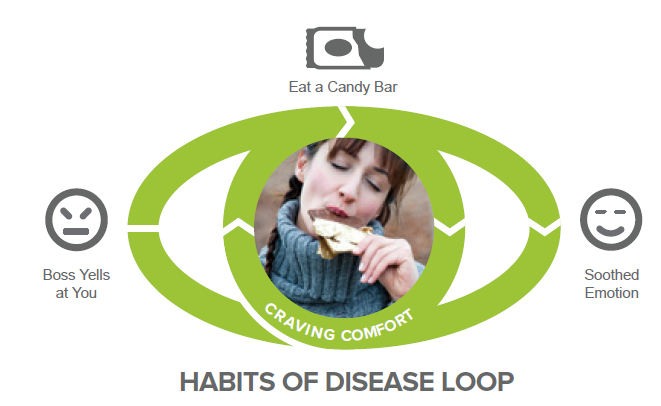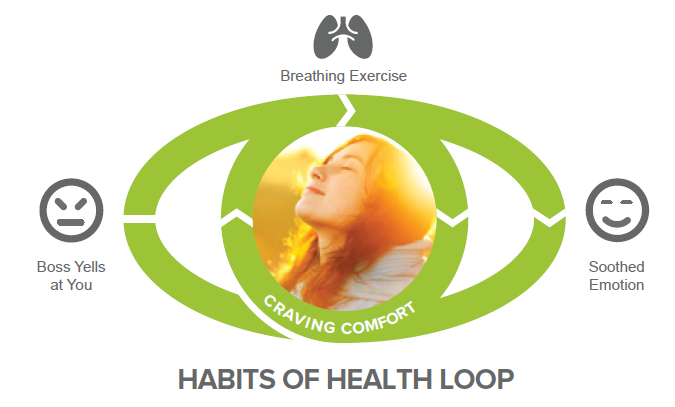Have you heard of emotional eating?
In last week’s blog post, we briefly discussed sugar addiction and how that addiction can make the health risks associated with sugar more difficult to manage. The research on food addiction is still incomplete, and while we are almost certain that particular foods—mostly sweet, sugary foods—can trigger a response on par with drugs or alcohol in some individuals, the medical community has not agreed on how addiction to other foods works or if it is even fair to characterize it as “addiction.”
If we set aside the scientific term and look at the nature of our relationship to food, we can see how we become dependent on foods or dependent on certain eating habits.
Have you heard of emotional eating? When we take questions from the field, questions about emotional eating and how to overcome it are among the most common. One of the major drivers of emotional eating—and all habits in general—is the habit loop that we forge. We recognize a cue, which triggers a routine, and that routine ends in some sort of reward.
Consuming ice cream rewards our brains with comfort (a rush of dopamine).
For emotional eating, that cue could be stress, which triggers us to reach for something comforting, like a tub of ice cream. Consuming that ice cream rewards our brains with comfort (a rush of dopamine). Over time, the association between the cue, the routine, and the reward strengthens, and eventually they become automatic. We feel stressed, so we immediately reach for the nearest comfort food. We might not be chemically dependent in the way we are with drugs or alcohols, but our habits have formed a powerful dynamic that we consistently look to for comfort.

How to create lasting change
Even if the scientific consensus on food addiction is not fully resolved, looking at our relationship with food through the lens of addiction can help us learn a lot about ourselves, our habits, and what we can do to create lasting change.
First of all, self-awareness and self-reflection are valuable parts of this conversation. We know that, for some individuals, substances like sugar or alcohol can trigger a binge-like frenzy of overconsumption, while others can safely enjoy them in moderation. If you find yourself losing control after a bite of a certain type of food, recognize that. Remove all of those kinds of foods from your home, and avoid even small indulgences.

Planning and support are critical
Having a plan in place for what you will do next time is a good first step, now back it up with practice and support. In any sort of behavior change, we have long known that support is critical. If you try to go it alone, the journey becomes exponentially harder. Find friends who support your health goals, and engage a health coach so that you have insight and help, before, during, and after you face a tough challenge.
Creating a new habit takes work
And those tough challenges will come. Creating a new habit takes work, and if something like dependency or addiction is a factor, you will certainly need a thorough plan and a strong support network behind you. At the same time, however, don’t forget the importance of the long term. A short-term stumble is unfortunate, but you can get back up, learn from the experience, and use those insights to be better next time.
If your ability to choose healthy foods in the face of cravings, stress, or temptation feels like an unwinnable war, talk to your health coach, and if you don’t have a health coach, reach out to OPTAVIA to request one. There is a whole network of good people willing to help you.